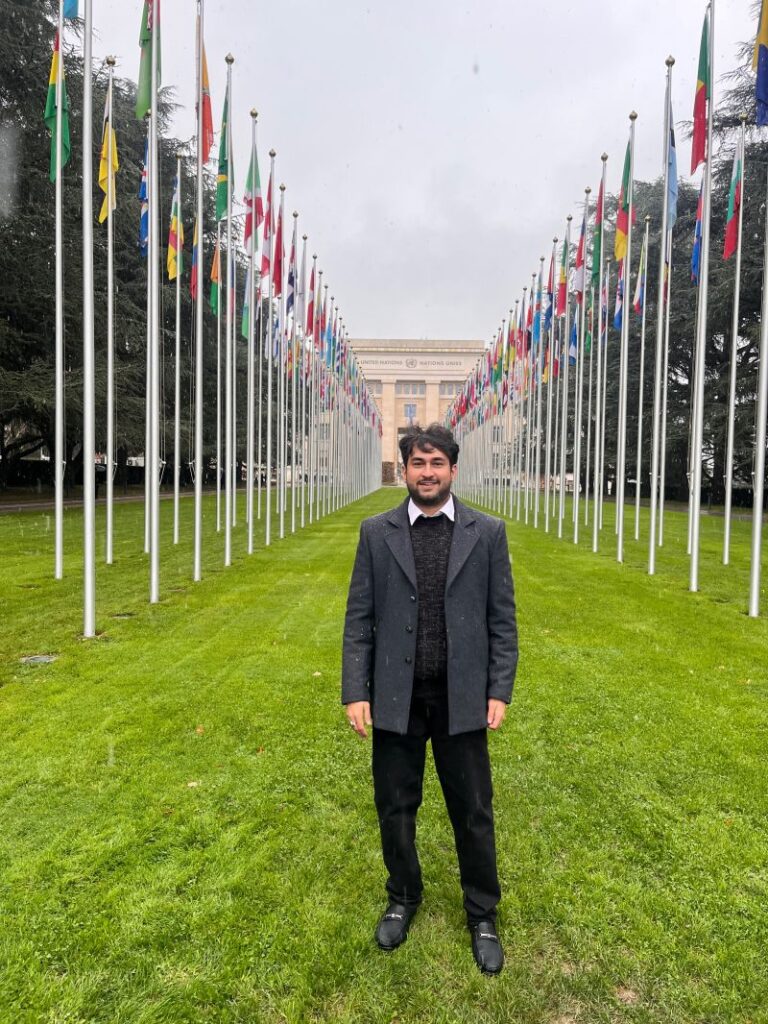Planting Seeds of Peace in the Soil of Hate
Imagine a child being told by his mother, “Don’t share your lunchbox with that kid. He’s not one of us.” Now imagine the seed that gets planted in a child’s heart one that tells him kindness has boundaries, and people of different beliefs don’t belong. That seed, watered with silence and nurtured by societal bias, grows into something darker: mob lynching, religious hatred, and violence. I was that child. Born in Thatta, a city rooted in heritage yet weighed down by generational divisions, I saw firsthand how discrimination begins with small acts like who gets to drink from your water bottle, who’s allowed to sit next to you, and who gets invited to your birthday party. One day, I forgot my lunch at school. No one shared theirs. And I knew why. That small heartbreak left a lasting scar, but it also ignited something fierce in me the determination to unlearn hate and to create spaces where no child feels less than human. So, I started a small community school with my friend. We funded it from our own pockets, buying notebooks instead of snacks. But after eight months, many children were pulled out not because we failed but because local religious institutions offered food along with religious education. It was a painful lesson in how even good intentions struggle against the lure of material security.
While studying Media and Communication, I chose a research topic close to my soul: how religious minorities are represented in Pakistani newspapers. The results were devastating. There were hardly any positive stories from my region. Our joy, resilience, and humanity were invisible. Then came COVID-19. The world paused, but I saw it as an opening—a moment to create something lasting. I founded Collective Pakistan, a digital storytelling initiative, alongside ten passionate volunteers. We began sharing unheard stories—like the imam who donated blood for a Hindu child or the Sikh temple feeding Muslim families during lockdowns. These stories pierced through the darkness like rays of sunlight.
We didn’t stop there. We trained young people in digital literacy, held online discussions about empathy, and launched peace ambassador programs. What began as a story-sharing platform soon grew into a movement. Without any major international funding, we created interfaith networks, university peace chapters, artistic campaigns, and collaborated with religious leaders on climate justice and coexistence.
But I kept asking myself: Is peace something you can teach in a PowerPoint presentation? No. Peace must be lived, experienced, and felt.

That’s why I created Safar Buddies, Pakistan’s first youth-led cultural and religious tourism startup. It wasn’t about sightseeing. It was about soul-seeing—healing, connecting, and reclaiming public spaces for women, gender minorities, and the curious hearts of Gen Z. On these journeys, we read poetry at ancient shrines, drum together after sharing our biases and fears, and allow music and storytelling to weave us into a community.
Each tour is a chapter of resistance, a refusal to let hate be inherited. We’ve seen girls from remote villages speak about interfaith love. We’ve seen transgender youth reclaim spaces they were once afraid to walk through. We’ve seen healing.
I am now a Kofi Annan Changemaker, but more importantly, I am a child who choose kindness over silence, stories over scars, and peace over power.
This journey isn’t over. My book of peace still has many blank pages. If you’re reading this and your soul feels stirred, I invite you to write the next chapter with me not just in words, but in actions, in shared moments, and in unwavering belief that together, we can build a world where no child is ever told who they can’t sit with.

